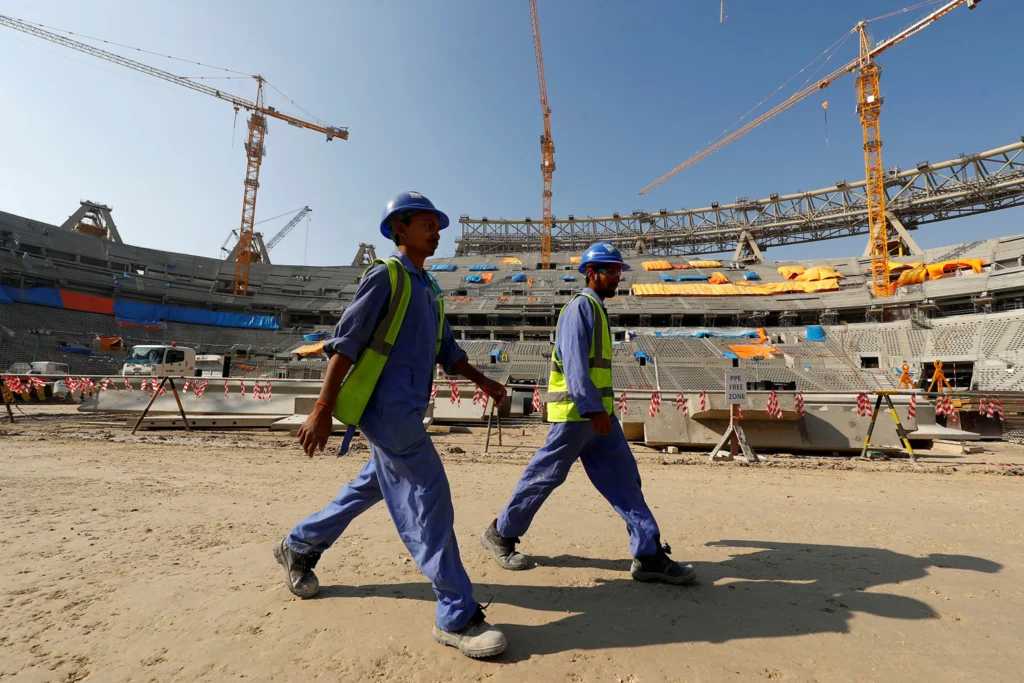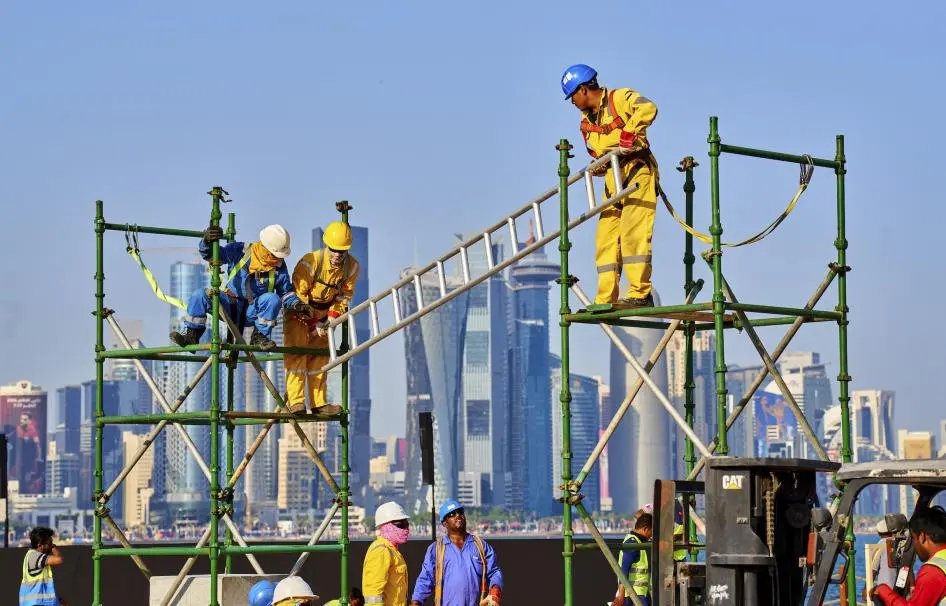Gulf labor market reforms have become a focal point for policymakers, employers, and migrant workers alike. Over the past few years, Gulf countries such as Saudi Arabia, the UAE, Qatar, and Oman have introduced sweeping changes in labor laws to improve employment conditions, empower workers, and modernize the labor market. These reforms aim to protect migrant workers, enhance their rights, and attract skilled talent while ensuring economic growth in the region.
Migrant workers make up a significant portion of the workforce in Gulf countries, particularly in construction, hospitality, and domestic services. Historically, they faced challenges such as limited labor rights, delayed wages, and dependency on sponsors for legal residency. The new labor reforms, however, are designed to address these issues and create a more transparent and fair work environment.
Key Gulf Labor Market Reforms
Gulf labor market reforms focus on several core areas:
1. Worker Mobility and Contract Flexibility
One of the most notable changes is allowing migrant workers more freedom to change jobs without needing their employer’s approval. Previously, workers were tied to a single employer through the Kafala system, which often limited their rights and bargaining power. With the new reforms, employees can move to different jobs after completing a notice period, improving their career prospects and reducing exploitation.
2. Wage Protection and Timely Payments
Delayed wage payments have long been a critical issue for migrant workers. Gulf countries are now enforcing stricter regulations to ensure timely wage transfers. Digital wage payment systems and mandatory bank transfers have been implemented to increase transparency and accountability. This ensures workers receive their salaries on time and reduces disputes between employers and employees.
3. Improved Worker Rights and Labor Law Enforcement
Labor courts and grievance mechanisms have been strengthened to give migrant workers a platform to report violations safely. Laws against abuse, discrimination, and unfair dismissal have been updated, providing workers with better protection. Some countries have also introduced legal frameworks for domestic workers, who previously had very limited rights.
4. Recruitment Process Reforms
Gulf countries are collaborating with sending countries to regulate recruitment fees and eliminate exploitative practices. The reforms aim to reduce debt bondage caused by high recruitment fees and ensure that workers are recruited ethically. Governments are also promoting the use of official channels and digital platforms to track recruitment and employment contracts.
5. Health, Safety, and Social Security
Workplace safety regulations have been updated, particularly in high-risk sectors like construction. Additionally, Gulf countries are gradually expanding social security coverage, ensuring migrant workers have access to health insurance and benefits similar to local employees.
Impact on Migrant Workers
The labor market reforms are having a positive impact on migrant workers in several ways:
- Better Job Security: Workers now have more protection against arbitrary dismissal and abuse.
- Greater Mobility: Migrant workers can explore better job opportunities without fear of losing legal status.
- Financial Stability: Timely salary payments and regulated recruitment fees reduce financial stress.
- Legal Empowerment: Access to labor courts and grievance mechanisms ensures workers can seek justice.
- Health and Safety: Improved workplace standards and insurance benefits enhance overall well-being.
These reforms are particularly significant for the large South Asian workforce in the Gulf, including workers from India, Pakistan, Bangladesh, and the Philippines. Many workers who previously faced uncertainty are now experiencing more stability and dignity in their jobs.
Challenges and Areas for Improvement
Despite the progress, challenges remain in fully implementing labor market reforms:
- Awareness Among Workers: Many migrant workers are not fully aware of their rights under the new laws. Governments and NGOs are working on awareness campaigns, but more efforts are needed.
- Enforcement Gaps: While laws have changed, enforcement varies across sectors and regions. Stronger inspection systems and penalties for non-compliance are necessary.
- Cultural and Employer Resistance: Some employers remain resistant to giving workers more freedom and rights, which requires continued policy enforcement and cultural change.
- Data and Transparency: Tracking labor reforms’ impact requires better data collection and reporting systems to ensure long-term effectiveness.
Country-Specific Updates
Saudi Arabia
Saudi Arabia’s Vision 2030 plan emphasizes labor market modernization. Reforms include lifting restrictions on job mobility and introducing minimum wage rules for domestic and non-domestic workers. The government has also improved digital platforms for employment contracts and dispute resolution.
United Arab Emirates
The UAE has introduced a unified labor law that simplifies work visas, enhances dispute resolution mechanisms, and provides better rights for domestic workers. Workers can now resign and change jobs more easily, a significant step forward for labor mobility.
Qatar
Ahead of the 2022 FIFA World Cup, Qatar implemented reforms that allowed workers to leave jobs without employer consent and ensured timely payment of wages. It also strengthened workplace safety standards in construction and hospitality sectors.
Oman
Oman has focused on increasing transparency in recruitment and improving worker protections under the new labor law. Health insurance coverage for foreign workers has been expanded, and labor complaints can now be filed online, making access to justice easier.
Economic and Social Benefits of Labor Reforms

Labor reforms in Gulf countries are not only beneficial for migrant workers—they also strengthen the overall economy:
- Attracting Skilled Talent: Improved labor conditions make Gulf countries more appealing to highly skilled international workers.
- Boosting Productivity: Workers who feel secure and fairly treated are more productive, leading to better economic output.
- Promoting Social Stability: Ensuring fair treatment reduces conflicts, grievances, and social tension.
- Enhancing Global Reputation: Labor reforms improve the international image of Gulf countries, attracting more foreign investment.
These reforms reflect a strategic shift in Gulf labor policies, balancing the needs of migrant workers with long-term economic growth objectives.
The Road Ahead
Gulf labor market reforms are still evolving. Countries are continuously refining laws and policies to address emerging challenges and gaps. Cooperation with international organizations, labor unions, and migrant worker communities will be essential for sustained success.
Key areas of focus for the future include:
- Strengthening law enforcement and monitoring systems.
- Expanding social security and benefits for all categories of workers.
- Increasing awareness programs to ensure workers know their rights.
- Enhancing digital tools for recruitment, payroll, and dispute resolution.
As Gulf countries continue to modernize their labor markets, these reforms set a benchmark for balancing economic growth with human rights, demonstrating that protecting migrant workers’ rights is both a moral and strategic imperative.
Conclusion
Gulf labor market reforms are transforming the employment landscape for migrant workers. By enhancing rights, improving wage protection, and promoting job mobility, these reforms offer workers greater dignity, security, and opportunity. While challenges remain, ongoing implementation and awareness efforts promise a brighter future for millions of migrant workers across the Gulf region.
The positive changes in labor policies not only benefit workers but also strengthen economies, foster social stability, and enhance the global reputation of Gulf countries. With continued progress, Gulf labor market reforms are paving the way for a more inclusive and sustainable workforce.
Do Follow Gulf Magazine on Instagram
Also read: Sultan Haitham Leads Oman’s Grand Festival Celebrating 5 Years of Renaissance



